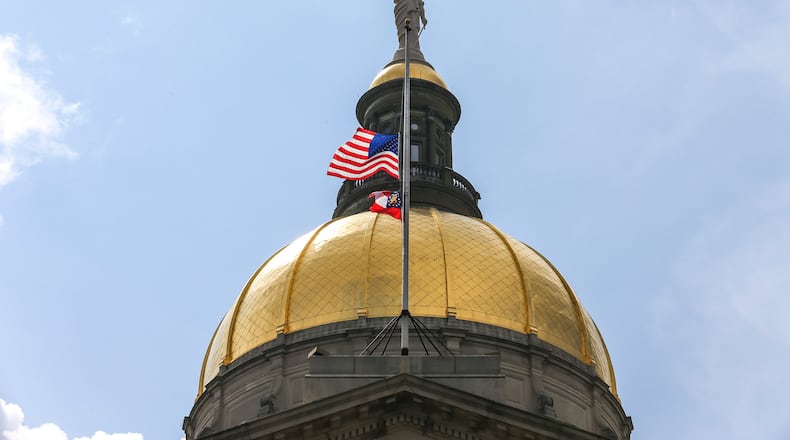Georgia’s ethics commission may next week consider allowing state lawmakers to raise campaign money while the 2020 General Assembly session is suspended due to the coronavirus, something that has so-far been outlawed.
That could be a blow to candidates challenging more than three dozen incumbents in the June Republican and Democratic primaries. Currently, those challengers can raise campaign money while the incumbents can’t.
The commission is set to meet Tuesday to discuss two advisory opinions on the campaign fundraising ban for incumbents, but they are also likely to discuss whether to keep the ban in place.
The meeting was called the day after The Atlanta Journal-Constitution reported that the ban may put incumbents in the fairly unusual position of being outspent by challengers in the primaries.
One of the advisory opinions essentially restates that the ban is in effect, the other that incumbents can use their own money to pay campaign expenses during the suspension and then be reimbursed after the session officially ends.
Jake Evans, the chairman of the ethics commission, said he has been getting a lot of questions about the law from candidates.
“The suspended legislative session - the duration of which is unknown - created uncertainty on the application of certain campaign finance rules, most principally relating to fundraising and personal campaign loans during session,” Evans said.
Evans said he called a meeting to “provide clarity” on the issues.
Under a law passed in 1990, lawmakers are not allowed to raise money during a legislative session. The measure was designed to keep lawmakers from taking checks during a session from lobbyists and others hoping to get their vote on legislation or obtain state funding.
However, in writing the law, legislators never contemplated a global pandemic that would force a suspension of a legislative session, preventing them from raising money for additional months and giving an advantage to their opponents.
As the AJC reported Thursday, the session suspension may last beyond the June primary, meaning lawmakers couldn't raise any more money for their primary campaigns. The session - and the ban - began in early January.
The House and Senate Republican caucus political action committees and GOP legislative leaders have more than $3 million in their campaign accounts and will commit some of their resources to help their incumbents beat back challenges.
However, about two-thirds of state lawmakers being challenged in June are Democrats, who don’t have such resources.
About the Author





